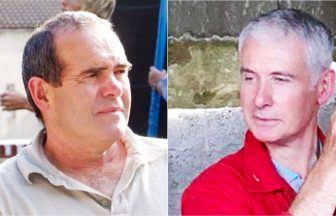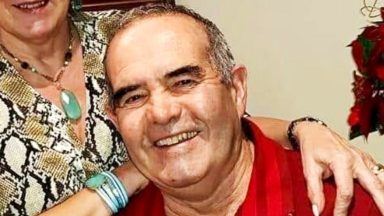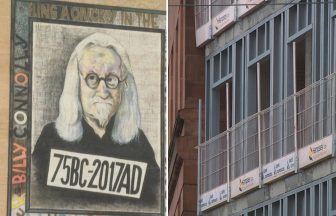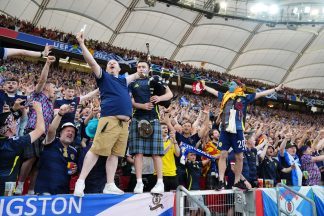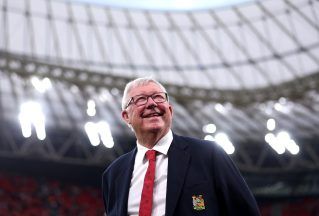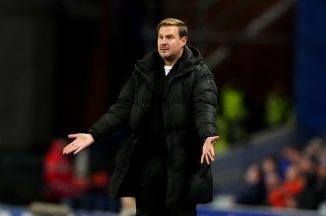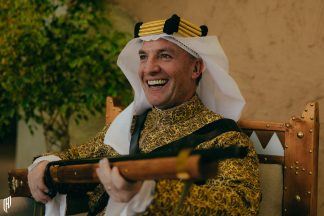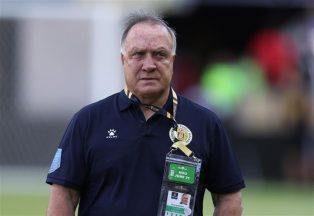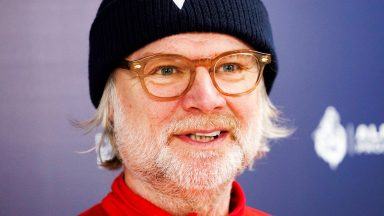Scotland have travelled to Germany for this summer’s European Championships dreaming of being the side that reaches the knockout stages of a major tournament for the first tie.
The national team has gone close before. Very, very close.
Euro 96 had a bit of everything for the Tartan Army: glamour, partying, an ancient rivalry, and late drama that proved to be a fresh chapter in anguish for the team and supporters.
Four years on from their debut at the championships, Scotland were aiming to make their mark on the Euros again, and with the finals taking place just over the border, fans headed south in their thousands to cheer the team on.
Facing the Auld Enemy

Having reached as one of the best second-placed teams in the qualifying campaign, Scotland watched on as the draw unfolded for the finals.
After being paired with Switzerland, Scotland were then re-united with Euro 92 opponents Netherlands and waited to see who would complete the group.
Step forward tournament hosts and eternal rivals England, setting up a Battle of Britain and a fixture that stood out from every other.
The teams hadn’t met since 1989 and Scotland boss Craig Brown said it had been a game that had been missed.
“It’s very favourable,” Brown said. “We’ve been looking to play England at football for some long time and it’s taken somebody else to arrange it for us.
“I’m sure the fans will be happy. I’m happy.
“The only worry I have is that it might distort attention and have people thinking we’ve only got England. We’ve got another two very important games and I will have to impress that on the players.”
Evolution not revolution in changes from ’92

Brown was taking charge of Scotland at a major tournament for the first time. Andy Roxburgh’s right-hand man at Italia ’90 and Sweden ’92, and Alex Ferguson’s assistant at Mexico ’86, the experienced coach had stepped up to the hot seat after the failure to reach the USA World Cup.
Over the four years since the previous Euros, there had been a big turnover in the playing squad too, with only eight of the 1996 squad having travelled to the last tournament.
The squad was still heavy on experience, and was the oldest squad at the competition with the 22 players averaging 29.3 years old.
Jim Leighton was the oldest, aged 37, while the youngest in the squad was 24-year-old Scott Booth.
Courage against the Dutch

Two days after England had opened the Euros with a 1-1 draw with Switzerland, the other two Group A sides went head to head.
Like Scotland, Netherlands had changed personnel since the last time the sides met. Unsurprisingly, the core of the side came from the Ajax team that had won the Champions League the year before.
Guus Hiddink’s side included Edwin van der Saar, Clarence Seedorf, and Edgar Davids but also Denis Bergkamp, who had scored the goal that separated the sides in Sweden.
Brown’s big call was to name Andy Goram as his starting goalkeeper, opting for the Rangers man ahead of Leighton.
Whoever was in goal was always likely to have a busy shift against a gifted Dutch side and Goram was called on early in the game when he stopped an effort from Gaston Taument. Seedorf and Bergkamp had chances and Scotland were sitting in and frustrating their opponent but with only limited attacking threat themselves.
Gary McAllister forced Van der Sar to stretch and save a goal-bound free-kick but neither side could find an advantage in the first half.
After the break, the side in orange continued to have more of the ball, and more opportunities to score. Seedorf had a powerful shot deflected over before Scotland got very lucky when John Collins handled the ball on the line but it wasn’t spotted.
No VAR in those days meant Scotland got away with one and they kept up their resistance until full time and took a point from the opener.
Wembley woes and a Gazza goal

After months of build-up and years without playing each other, Scotland and England resumed their rivalry at Wembley.
Since the first international match in 1872, the teams had met 107 times, with England winning 43 and Scotland victorious in 40. They had never met at a major tournament and the stakes had arguable never been higher.
England boss Terry Venables had a swagger about him, and a good crop of players to choose from. Alan Shearer was one of the best strikers in the world and the midfield spark was provided by Paul Gasgoigne, who had enjoyed a magical season with Rangers.
With the Scotland players likely as sick of hearing ‘Football’s coming home’ as much as the rest of the nation, there was a hard fought, stubborn character to the side and they kept the hosts restricted to few chances in the first half.
England’s quality proved to be the difference not long after the restart. Gary Neville bombed down the right flank and got on the end of a through ball, delivering an inviting cross that Shearer met with a thumping header at the back post. Goram was beaten and Scotland were 1-0 down.
Scotland pushed for an equaliser and the Tartan Army’s hopes were high when Gordon Durie went down under a challenge from Tony Adams. Referee Pierluigi Pairetto pointed to the penalty spot and Scotland had a chance to go level.
Gary McAllister stepped up, the ball bobbled just before he struck it (an incident Uri Geller would later take credit for) and David Seaman was able to save.
In the time it took for every Scotland fan to bury their head in their hands and then look up again, England had launched a counter-attack.
Gascoigne was the last person the Scots defence would have wanted to see on the ball as he approached the box and he showed why, lobbing Colin Hendry and then thumping a volley past Goram to make it 2-0.
Scotland were beaten, but with Netherlands having already beaten Switzerland, a look at the group table showed all was not lost.
Kluivert kills Scotland’s dreams

Scotland knew they had to beat Switzerland in the final game or they would be heading home, but the balance in Group A meant more than that was needed.
England would have to defeat the Dutch and across the two games there would have to be a five-goal swing in Scotland’s favour.
Ally McCoist came into the Scotland team with Brown knowing the veteran striker would increase the chances of vital goals, while Craig Burley was added to the midfield. And while Villa Park was where Scotland faced their challenge, everyone had one eye on the score at Wembley.
England were first to find the net, going 1-0 up against Netherlands when Shearer scored after 23 minutes. So far, so good. But Scotland needed a goal of their own.
Step forward McCoist, who had never scored at a major finals despite a prolific club career. The man who made his name as a penalty box poacher par excellence decided to mix things up, letting fly with a thumping shot from outside the box that Switzerland keeper Marco Pascolo couldn’t stop fizzing inside the near post.
Both results were in Scotland’s favour now but more goals were needed. England obliged. Teddy Sheringham netted, then Shearer again before Sheringham grabbed his second as England scored three goals in 11 second half minutes to race to a 4-0 lead. As things stood, Scotland were going through.
Brown had been encouraging his side forward, even asking Hendry to play up top as a makeshift striker as his team sought a second but when it became clear that Scotland were through as things stood, the team reverted to their more natural defensive state.
Switzerland were kept at bay as the minutes ticked down but the dagger to the heart came from the Dutch.
Down and out against England, they found a vital goal 12 minutes form time. Young Ajax striker Patrick Kluivert, who had scored a Champions League winner a year previously, found the net at Wembley and changed the group table in his side’s favour.
Netherlands and Scotland were level on four points each, the head-to head couldn’t split them after their draw, and the goal difference was identical.
Scotland had conceded fewer goals – two compared to Netherlands’ four – but the Dutch had found the net three times and Scotland only once. UEFA favoured goals scored and Scotland went out by the narrowest of margins.
Brown’s words after the final whistle echoed Roxburgh’s four years earlier as he said the effort couldn’t be questioned. Bemoaning his side’s luck, he said the players were “desperately disappointed” but “philosophical”.
The manager and his side would recover and qualify for the World Cup in France two years later but few would have predicted a 25-year wait before a Euros return.
Follow STV News on WhatsApp
Scan the QR code on your mobile device for all the latest news from around the country



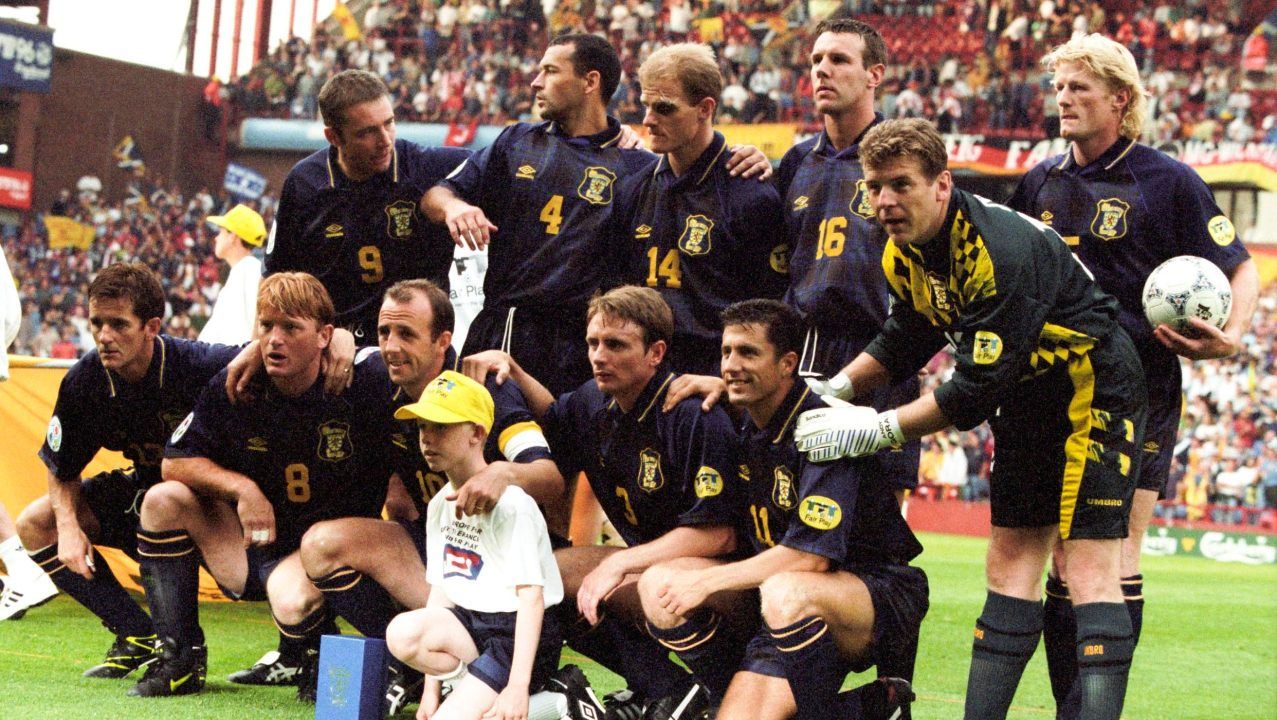 SNS Group
SNS Group

